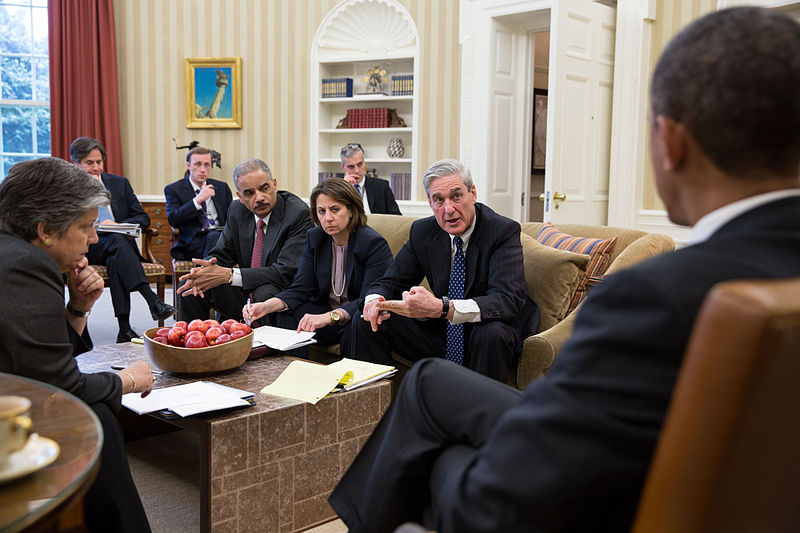It’s difficult to keep up with the White House’s merry-go-round of accusations and firings, but Trump’s most recent accusation is more than worth the notice. On March 17, just one day after he fired FBI Deputy Director Andrew McCabe, the president unleashed a fiery chain of tweets criticizing Robert Mueller and his special counsel – a sign that the Russia investigation may finally be starting to get under the administration’s skin. It also means, however, that Mueller’s position itself is on the line, along with the rest of the already vulnerable state of the election probe. If Trump manages to dismantle the special counsel – an event that, though unlikely, is entirely possible under a proposed DOJ order – the Russian collusion investigation will come crashing down, and with it, grounds for Trump’s indictment. Here’s why you should care about the Mueller case – and why you should be concerned about its potential downfall.
At its heart, the Mueller probe is a detailed, FBI-led index of each time Trump or those affiliated with him interacted with Russian officials. Recorded instances go back to 2013, when Trump’s candidacy seemed impossible but affiliated Russian internet agents were already planning to influence the election, to interviews and subpoenas today.
The investigation has uncovered money transfers between Trump and several government-funded agencies and companies in Russia; emails between those on the Trump campaign trail, many of whom are well known media influencers like George Papadopoulos, and high-ranking Russian officials; and an intricate Russian network of Internet trolls called the Internet Research Agency bent on sowing discord between Democrats and nudging the 2016 fake news climate in Trump’s favor. It has even led to the arrests of Papadopoulos, Flynn, and campaign leaders Paul Manafort and Richard Gates. To list every piece of evidence would be exhaustive, but most of it points to the same jarring conclusion: Trump campaign officials may have colluded with Russia to sway the campaign to their side.
If enough substantial evidence is gathered, the Mueller investigation could be similar in scope and impact to the Watergate scandal, which ultimately forced Richard Nixon to resign. But Trump isn’t giving up that easily. A string of firings and blundered attempts to brush the scandal aside mark his attempts to throw Mueller off his trail: a House Investigation denying collusion, the sacking of Flynn and Comey, a recently revealed attempt to fire Mueller just before his appointment to the special counsel. Last Thursday, Trump’s lawyer resigned after being continually pressured to block the investigation; Trump continues to search for a lawyer to take up the case. The administration is clearly concerned – but are they concerned enough to fire Mueller?
Professor Richard W. Painter of the University of Minnesota Law School suggested that the lines are a little fuzzy. “The argument that President Trump has the absolute right to fire Mr. Mueller is just plain wrong,” he said. Still, he thinks that safeguards should be put in place to prevent the firing, saying, “It is critically important that Congress act now to pass legislation protecting the special counsel from being fired before his investigation and the ensuing prosecutions are concluded.”
Locally, people are still unsure Mueller’s staying or going will affect anything. “It seems like everything just bounces off Trump,” says junior Regan Breen. “Still, it might be interesting to see how the investigation turns out, especially with talk of Russian agents in social media. Mueller’s firing could change that.”
“The Mueller probe should never have been started in that there was no collusion and there was no crime,” Trump tweeted that fateful Saturday in March. “WITCH HUNT!” Trump may have gotten one thing correct: the hunt is closing in. Whether or not Mueller can see it to its end remains yet to be determined.









